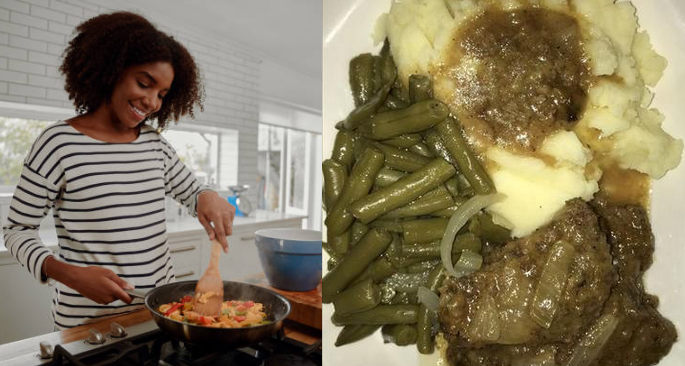A woman on Twitter identified as Baby mofo has left people talking after revealing how they cooked and ate her aunt’s placenta after she gave birth.
Actually, the lady shared disgusting photos of the placenta before and after being cooked.
She went ahead to urge her followers to try out the new meal
“We just ate my Aunts Placenta right now after she gave birth, and it is so delicious. Y’all should try it, it is very nutritious,” she wrote.
This left netizens divided as others confirmed that the placenta can be eaten, while others felt it is a taboo.
https://twitter.com/_Kallii_/status/1661339265316409346
Here are some of the reactions from KOT:
@mku_komrade: Huyo amepika Placenta ya aunty yake after amejifungua na akakula🤢 wacha nilog out sasa💔😭
@Limorio_: I was having a good week till I found out that there are people who eat their placentas after birth, hadi kuna placenta chefs.
@______Aaron_: I’ve never been so disturbed😳😳what??!!!
@MrIvy19: Some mofos here eating placentas for a living. 😂👐. Fear women. Eeh.
@Mchiziflanii: Okay, God please give thanos all the stones, we’re ready now🙌💯
Is eating your placenta a good idea?
Apparently eating your placenta helps in better sleep, weight loss, breast milk production and even good mood.
No Kenyan woman has come out publicly with claims of partaking her placenta for the above or any other benefits.
The fad of mothers turning on their placentas led to the creation of new businesses. One British woman, Kathryn Beale, led a venture that specialised in whipping fresh placenta into top-notch smoothies. She also prepared ground versions in capsules.
Study findings released in June this year published in the periodical Archives of Women’s Mental Health, found that eating a placenta after birth does not stop depression or increase energy levels of new mothers. The placenta does have protein and fats. But those nutrients can be found in a healthy diet as well.
In an interview with the Standard, Dr Elly Odongo, the former chairperson of Kenya Obstetrics and Gynaecology Society (KOGS), believes that eating of placentas has all the hallmarks of cultural beliefs rather than scientific conclusion.
“Some communities ask for their placenta to take it back home,” he notes.
“They don’t like it to be disposed of at a hospital. Superstition drives them to ‘own’ the placenta back because, as some may say, it assures them of continuity in the family.”
According to Dr Odongo, the placenta functions to keep pregnancy intact before nine months elapses, at which point a baby is born.
“It produces a range of hormones to keep the pregnancy stable. One of them is oestrogen. Production of oestrogen suppresses the production of prolactin, the hormone responsible for milk production.”
In essence, he says, the placenta works against milk production. There is no basis for the argument that anything in the placenta increases milk production.
On post-natal depression, Dr Odongo says there is no scientific proof to verify or negate the placenta offering remedy.
“It is all speculative. But it could be true. Science evolves and someday there may be proof to that effect. Currently though, anyone eating placentas would be doing so for reasons not known to medicine,” he adds.






